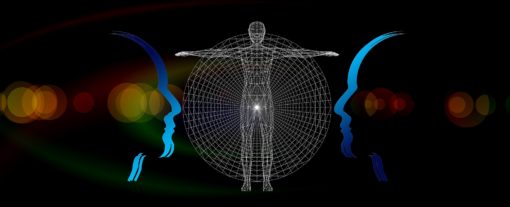
This is going to sound like a conspiracy theory but less effective treatments for anxiety and depression are being promoted and offered.
The World Health Organisation (WHO) reports that depression is the leading cause of mental health in the world. In 2021, WHO statistics showed over 700,000 people die of suicide each year – and worryingly, it’s the fourth leading cause of death in 15-29-year-olds.
In the current paradigm for treating anxiety and depression with established interventions, this data is going to get worse.
What I find most disturbing is that professionals give their patients substandard treatments and, more worryingly, accept those treatments only work for half their patients as a fact of life.
Not only that, but when the treatments do work, they are not permanent.
It would appear that the majority of therapists haven’t done their research.
In this article, I’ve listed examples of studies and reports that documents the effectiveness of the most common treatments for treating patients with anxiety and depression.
And then I show you studies of treatments that deliver better results.
Spoiler alert: the results for the most common interventions – anti-depressants, cognitive behaviour disorder (CBT) and various talk therapies are not very encouraging.
And if you do have depression, mainstream sources are not going to steer you towards effective treatment – or, for that matter, give you an optimistic outlook.
I’ve got good news for you…There is a cure for anxiety and depression!

Now there’s a question that splits the grand jury. Nearly all research data shows that around 50% of people do respond to various treatments.
Take a look at these statistics published by leading “authorities”.
“The American Psychiatric Association, at least 50% of people who have an episode of major depression will go on to have a second. And about 80% of people who have two episodes will have a third.” ~ WebMD
That’s a lot of people having a relapse!
Can we have some better news, please?
“Although the majority of people recovering from a major depressive episode are unlikely to suffer a full relapse within 60 months, most will not remain symptom-free over the same time period.” ~ The British Medical Journal
Oh, I’ll take that as a no then.
What’s more, the BMJ only included 95 people and excluded patients who were on anti-depressants. And the results were still low.
Can anyone else offer a ray of sunshine? Surely, you can Recovery Village. Your company suggests you help patients recover.
“Depression recovery statistics may not offer the clearest picture of how the disorder affects people. Due to the nature of depressive conditions, there is no absolute cure, but ongoing treatment and therapy can mitigate depressive symptoms. After receiving treatment for depression, people may experience diminished symptoms and improved moods due to effective antidepressant medications or coping mechanisms. However, the symptoms of a depressive disorder can return later in the person’s life and require additional treatment if treatment stops.” ~ The Recovery Village
No absolute cure?
But you’re called the Recovery Village!
In my experience, there is a cure for anxiety and depression. Many other people that turned their back on anti-depressants and CBT will probably tell you similar stories, but with a range of different treatments.

I suffered from anxiety and depression until around the age of 41 after studying esoteric wisdom and expanding my conscious awareness. When you connect to yourself and find purpose and meaning in your life, you overcome – or avoid – depression.
Academic studies support that there is a “definite relationship of meaning in life with depression and psychological health” yet despite one study in 2012 saying, “more investigation in this area is needed” it doesn’t appear as though researchers are getting to finding to look more deeply into this.
And so established institutions continue to sell depressed patients products that don’t work and feed them limiting beliefs that cures are hard to come by.
I am here to tell you that the official line is a lie. There is a cure for depression and anxiety and you don’t need to be popping pills.
Between the ages of 29-31, I sought the help of several doctors, psychologists and counsellors. Their advice, exercises and drugs did not help.
Perhaps I should have stayed on the anti-depressants for more than five days – but they made my anxiety and nausea significantly worse. I believe the body does not lie. If you ingest something in your body that should not be there, a biological response emerges.
I binned the medication. On hindsight, that was probably a good decision. Anti-depressants only provide a temporary reprieve and are more likely to cause a host of side effects and have been linked with violent behaviour.
Anti-depressants merely mask the symptoms, they don’t cure the problem. When you mask the problems, you hide the issues with your inner world that you need to address.
Jungian psychology has shown that energy from the unconscious impacts how we experience life. This includes beliefs, attitudes, behaviours and other emotional drives that influence our decision-making. And ultimately, our experience of life.
If you know how to identify your emotional drives, it’s easier to determine which energies are creating problems in your life.
I appreciate this sounds mystical, but understanding symbolism, in particular, archetypes, enables you to observe, identify and correct emotional drives that push the self-destructive button.
Most Jungian psychologists practice some form of understanding of symbolism. Most will turn to the scientific models of archetypes (which, in my opinion, are only 75%-85% accurate). Other depth psychologists will perform dream analysis.
Master Mind Content does both dream analysis and tarot to identify archetypal energies. Either way, we can determine which emotional drives, motivations, beliefs and attitudes are influencing your everyday life.
Not only that, but all you have to do is tell me a story and I can identify which archetypal energies are trying to make themselves known. As we discuss the archetypes, you will think of another story where something similar happened.
Before the end of your first session, we will have established a pattern of behaviour. All we need to do then is find the root cause and decide how we are going to transform your energy and expand your conscious awareness.
If you’re experiencing depression, I already know which archetypes are dominating your life. The negative caretaker and/or the Everyman. I also know which archetypes you need to help pull yourself out of the mire; the Explorer, Lover, Hero and Sage.
Whilst these same archetypes can help anybody overcome depression, how you apply their qualities will be different for everyone.
I know the practices I teach work from personal experience. As mentioned above, I also feel that conventional treatments that are used to treat patients with anxiety and depression are not effective. The statistics support my suspicions.
Let’s take a look at some anti-depressant stats.
Anti-depressants are the leading intervention for anxiety and depression – despite the results being sketchy, to say the least.
It is acknowledged by experts that new treatments for anxiety and depression are “badly needed.”

And this is from an article in mainstream media that has a headline that clearly promotes antidepressants. When you get into the article, you start smelling BS.
This is how mainstream media rolls with the pharmaceutical companies that sponsor them. The headline claims that “antidepressants do work”, but one of the experts interviewed, John Geddes, professor of epidemiological psychiatry at Oxford University, said: “We don’t have any very precise treatments for depression at this point in time.”
The report goes on to say that the treatments we do have help to reduce symptoms by 50%. That’s why the headline reads: “The drugs do work.” Just not very well.
This type of misleading reporting is prevalent in mainstream media and paid for academic studies. Science has been corrupted.
Other studies that promote the use of anti-depressants “in the right circumstances” is not that convincing either. One study compared the effectiveness of anti-depressants versus a placebo showed:
“With antidepressants: About 40 to 60 out of 100 people who took an antidepressant noticed an improvement in their symptoms within six to eight weeks.” ~ NCBI
The same study confirms that “antidepressants are usually taken for one to two years, and sometimes longer, to prevent relapses.”
That sounds like a profitable way to treat people.
The NHS confirms pretty much the same number of people see improvements although acknowledges:
“Most people benefit from taking antidepressants to some degree, but research suggests antidepressants may not be as effective as previously thought in cases of mild depression.” ~ NHS Inform
What are they saying here, that patients have to have really bad anxiety before they even notice a difference that a pill makes?
I know from experience that mild depression gets worse if left untreated.
The good news is that when you know how the mind-body connection works, you don’t need medication to treat anxiety and depression at all.
So how many patients get results using traditional methods?
“The best antidepressant had an average remission rate of 50.78%, 1.5 times higher than the average antidepressant (30.30% remission rate) and 20 times higher than the worst antidepressant.” ~ The Lancet
To clarify, remission means you will have a “temporary diminution of severe symptoms”.
So on average, 70% of people that take antidepressants don’t experience any improvement in symptoms. At best, one anti-depressant will alleviate symptoms in 50% of people.
Is this why the Recovery Village says there is no cure? Or do they mean there is no cure from a conventional doctor dishing out anti-depressants?
It would appear that medication is not the answer to effectively treating anxiety and depression.
Given the results – and comments by experts – we should be questioning why anti-depressants are still the most widely used intervention. Some of the negative reporting around the ineffectiveness of anti-depressants go back 20 years or more.
So what is the alternative treatment and how can you cure depression?
The mainstream view is cognitive behavioural therapy (CBT).
Talk therapy will probably deliver better results than a pill, but the results are still somewhat underwhelming.
Let’s check out the results.
Psychologists regard CBT as the gold standard for psycho-therapeutic treatments. It’s certainly the most widely used form of psychotherapy. But is it really the most effective?
A study that compared the effectiveness and efficiency of CBT and generic counselling (talk therapy) in the treatment of depression did not see a significant improvement in patients. The conclusion of the study reads:
“Outcomes for counselling and CBT in the treatment of depression were comparable. Research efforts should focus on factors other than therapy type that may influence outcomes, namely the inherent variability between services, and adopt multilevel modelling as the given analytic approach in order to capture the naturally nested nature of the implementation and delivery of psychological therapies. It is of concern that half of all patients, regardless of the type of intervention, did not show reliable improvement.” ~ BMC Psychiatry
On a more encouraging note, the Department of Psychiatry in the UK claim that “CBT offers long-term benefits for people with depression”.
But then you read the data and discover their idea of “long-term” is not really all that long – and the treatment includes antidepressants.
“The study found when CBT was given, in addition to usual care that included antidepressants, it was effective in reducing depressive symptoms and improving quality of life over the long term – on average 46 months – for patients whose depression had not responded to medication…Over the course of 46 months, 43 per cent of those who had received CBT had improved, reporting at least a 50 per cent reduction in symptoms of depression, compared with 27 per cent who continued with their usual care alone.” ~ Department of Psychiatry
So this study shows that CBT can help more people that are on anti-depressants recover – but the results are still not great.
Does that mean that CBT is better than anti-depressants?

Well, in the main yes. Antidepressants have shown up to a 60% improvement but they are not a proven treatment that has lasting effects. At best, they suspend symptoms. Medications masks symptoms.
Having said that, it appears that CBT has short-term limitations as well. That’s because they focus on coping mechanisms which eventually loses power. CBT rarely addresses the root cause of your anxiety.
A study in Norway cites a comparable outcome in that 53% noted improvements and 63% had reduced effects of primary symptoms. However, the focus group of the study is the younger generations who naturally have better rates of recovery.
The study, at least, shows there is a reason to explore CBT for depression and anxiety in younger people.
Hopefully, CBT treatments will not also include anti-depressants.
Having said that, meta-analysis shows that the positive effects of CBT are declining – which suggests the methods being used are inadequate.
Does this mean that practitioners are not being trained in CBT effectively? That’s certainly how it appears.
When I spoke to psychologists that provide CBT to their patients they say they use techniques such as journaling, meditation and reframing.
These can be all useful techniques, but only for short-term coping mechanisms. It would appear that CBT meditation techniques are not effective either. They use the water-down Buddhist technique of observing your thoughts and letting it go.
If your CBT therapist asks you to observe your thoughts then let it go, the only thing you should be letting go of is your therapist.
I asked one psychologist that provides CBT to delinquent children how she teaches her patients to observe the subconscious mind.
Her reply was, “my patients are ready to learn about the subconscious yet.”
What?
The unconscious drives 90-95% of your behaviour. If you’re not observing your instinctual drives, you will continue to think and act in the same ways, generate the same energies and have the same experiences.
The same principle determines how you feel. If you’ve got depression, it’s a warning sign that you do not have any direction in your life, you lack purpose and meaning and your mind is filled with negative self-talk.
A simple way to start your road to recovery is to stop doing what other people want you to do – especially if you don’t like it. One of the reasons I got depression is because I always went to the same places my friends did even though I didn’t enjoy it. I just wanted to fit in.
When you engage in activities you don’t like or you pretend to be the person you are not just to feel a sense of belonging, you will always wear a mask that hides the REAL YOU. In effect, you are burying your inner power. And with it the fulfilment and joy that deserve in life.
If this sounds like you, it’s time to try a treatment for depression that really works.
Whilst I acknowledge CBT does have some useful coping mechanisms, behavioural therapy only delivers short-term solutions. It doesn’t provide a cure.
You will find a cure, however, in treatments that are grounded in depth psychology and incorporate some form of energy transformation.
There is evidence to indicate that depth psychology is a superior approach to treating anxiety and depression to either anti-depressants, CBT or talk therapy.
Yet there has been a limited number of studies performed to show the efficacy of depth psychology. However, a meta-analysis of 23 studies showed promise – it was found that improvements were notable once the treatment had ended (although the follow-up was only 9 months after).
Despite the efficacy of depth psychology, there appears to be a reluctance to admit that Jungian psychology delivers superior results over other forms of treatment. Even when studies show promising results, the researchers seem reluctant to admit it. The writers of a study in Germany and Switzerland noted:
“On the other hand, the overview of the studies indicates some recurrent problems. We have to note that in all studies 10%–20% of patients did not profit from Jungian therapy.” ~ NCBI
Note that the data from this meta-analysis shows at least 80-90% of patients experienced favourable benefits from depth psychology. But the author uses the numbers 10-20% that didn’t benefit.
Do you see how the data is presented here compared to how mainstream media presented a headline that promoted pharmaceutical drugs?
But let’s compare depth psychology to conventional treatments.
80-90% of patients benefitted from depth psychology. The NHS reported in 2018-2019 that “a total of 50.8% of courses of treatment for anxiety and depression ended in a patient’s recovery.”
So why are the researchers publishing the lower numbers and focusing on the negative angle even when they are showing that depth psychology is clearly superior to other treatments?
You will generally find that headlines promoting anti-depressants and CBT put a positive spin on the statistics despite the overall results delivering average results at best.
What is wrong with this picture?
The reason why depth psychology is brushed to one side is that it works – up to 90% of the time. But there’s no money to be made from effective cures. So entire industries and businesses that rely on the in-flow of cash from those industries put their patients on a treadmill of pills.
It would also be nice to know what the long-term benefits of depth psychology are. So if any researchers want to track this…it would be useful.
But good luck getting the funding for that study!
There have been several research projects and empirical studies performed since the 1990s, however. The results showed “significant improvements not only on the level of symptoms and interpersonal problems but also on the level of personality structure and in everyday life conduct.”
This not only means that depth psychology will cure your depression and anxiety, it also helps with your personal development. Integrating archetypal energies that you haven’t activated yet (unconscious content) enables you to expand your conscious awareness and become the best version of yourself.
In fairness, depth psychology is more difficult for practitioners to master. For depth psychology to be effective, your therapist needs to have an understanding of esoteric symbolism in order to determine which archetypal energies are surfacing from the unconscious.
Depth psychology is a method of increasing self-awareness by understanding how unconscious energies determine your patterns and thinking and behaviour.
The thoughts and actions you perform over a period of time determine how you feel. If you’re suffering from anxiety and depression, you need to understand what thoughts and actions have resulted in your condition.

I can tell you know that depression is a result of ignoring your emotional well-being. Although emotional well-being looks different for everybody, the cure is usually quite simple to determine for each individual.
The treatment we provide for anxiety and depression at Master Mind Content is to observe energies that arise from the subconscious and from the unconscious. We then determine which archetypal energies are present and which you need to integrate into your personality.
First of all, it’s important to understand the different functions between the subconscious and the unconscious. This is important because it enables you to determine which archetypal energy is driving your habitual behaviours (subconscious) and which aspect of consciousness needs to integrate into the conscious mind (unconscious).
Archetypal energies are patterns of behaviour that are inherent in all mankind. If you understand which archetypal energies drive specific behaviours, emotions, perceptions and attitudes, it’s easy to change your behaviour and counterbalance the energies by integrating the unlived aspects of your personality into the conscious mind.
If you want to know more about archetypes and how they can be used to cure anxiety and depression, check out this video on YouTube.
Archetypal energies are powerful tools that help determine which unconscious energies are trying to break through into your conscious thinking.
Master Mind Content has developed a self-development program specifically designed for creative introverts that are struggling with anxiety and depression.
I have developed an easy-to-use archetypes tool that shows you precisely how to recognise unhealthy patterns of behaviour that contribute to your anxiety and depression. More importantly, it also provides you with the solutions to get your life back on track and move from pain to pleasure, fear to love, and sadness to happiness.
The program is grounded in depth psychology, but also includes knowledge of epigenetics, quantum physics and neuroscience. It is entirely science-based but uses the images and stories of ancient mythology to help you to recognise, understand and remember the mass array of archetypal energies that your produce.
The program also includes a selection of powerful tools that empower you to create a richer quality of life together with a step-by-step path that helps you to get to where you want to be.
